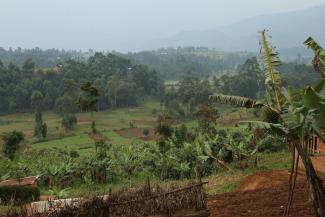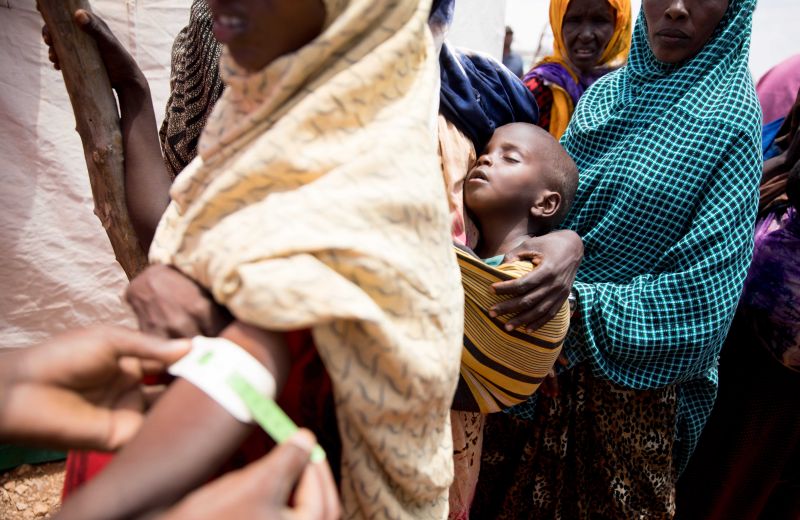Biotechnology
Why Uganda does not have a GMO law

Agriculture is the most important industry in Uganda, both in regard to local demand and exports. Many people’s livelihoods depend on rain-fed farming. Subsistence farming is common moreover. Not everyone gets enough to eat. According to the FAO, the UN Food and Agriculture Organization, almost one fifth of Uganda’s population suffered severe food insecurity in 2020. The World Bank estimates that half of the population was moderately food insecure after the second coronavirus lockdown in 2021.
One reason for persisting food insecurity is the climate crisis. As precipitation patterns change, recurring drought haunts many areas. On the other hand, extreme weather caused devastating floods in 2022.
It also matters that more refugees live in Uganda than in any other African country. Over 1.5 million people have fled from violent conflict in neighbouring countries, especially South Sudan and the Democratic Republic of the Congo. All of them need food. Not quite 50 million people are currently living in Uganda (see Jörg Döbereiner on www.dandc.eu).
Genetic engineering is considered an option for improving food security. According to some experts, it could serve to triple the yields of specific cultivars. Plants can be modified in ways that make them more resistant to pests or drought. Genetic modification can also lead to higher nutrient content. On the other hand, gen-technologists have made cultivars herbicide resistant, which allows commercial farmers to radically increase the use of both fertilizer and pesticides. Approaches of this kind harm the ecosystem and require expensive inputs.
Due to global heating, Uganda will most likely experience more drought in the future. The prospect of farmers’ plants needing less water is alluring. Given that the population is currently growing by more than three percent per year, higher yields would be most welcome as well.
Unregulated GMOs
So far, Uganda does not have a law to regulate GMOs. Accordingly, farmers shy away from them. Legislators have not defined who would be liable for undesired side-effects. Intellectual property rights have not been spelt out either. Monica Musenero, the science minister, says legislation is needed to promote research and make risks manageable. “It is the laws that will ensure our products are trusted and are of good quality,” she said.
Legislation has been stalled for years however. President Yoweri Museveni has twice (in 2017 and 2019) refused to sign a law approved by the Parliament. He demanded improvements, and there has been no breakthrough since.
The head of state belongs to those who fear that GMO use might alter human DNA, so he demanded that it be limited to plants and domestic animals and exclude human beings. Also, Museveni fears that GMO will put biodiversity at risk. He wants the future law to demand the establishment of gene and seed banks in order to store and safeguard animal and plant species used in agriculture. Experts, however, point out that biodiversity is in constant evolution, so storing genetic information is insufficient. If the genetic material is to remain valuable, traditionally used varieties must evolve in the ecosystems they are adapted to (see Parvis Koohafkan on www.dandc.eu).
Smallholders less likely to profit
In Uganda and in other developing countries, smallholder farmers are far less likely to profit from genetic engineering than large agribusinesses and the multinational producers of seed and agrochemicals. They are at risk of becoming dependent on those multinationals, for instance if they have to buy new seed annually along with expensive fertilisers and pesticides (on smallholders’ relevance for food security see Hildegard Lingnau on www.dandc.eu).
GMO sceptics point out that it would be feasible to irrigate much more land in Uganda. Expanding irrigation would increase yields without running any kind of GMO-related risk.
“Food security is the least convincing argument for GMOs, especially when it comes in intemperate interventions by foreigners with undisclosed interests,” says Mary Serumaga, a Ugandan researcher and activist. She accuses foreign investors and prosperous nations of taking decisions without involving the people who are actually exposed to food insecurity. Smallholders, she points out, are hardly represented in the relevant multilateral negotiations. The debate regarding a GMO law continues in Uganda.
In the meantime, Uganda is involved in scientific cooperation geared to boosting farm productivity. The National Agricultural Research Organization (NARO) was established in 2005. In 2020, it joined the “Feed the Future” initiative of USAID (United States Agency for international Development).
The programme covers several developing countries. The idea is to promote technologies that deliver higher yields and more nutrients, not necessarily based on genetic engineering. Previously, USAID had introduced a non-GMO orange-fleshed sweet potato (OFSP) with high vitamin-A content in Uganda.
Ronald Ssegujja Ssekandi is a Ugandan author and edits D+C/E+Z’s Nowadays column.
sekandiron@gmail.com











